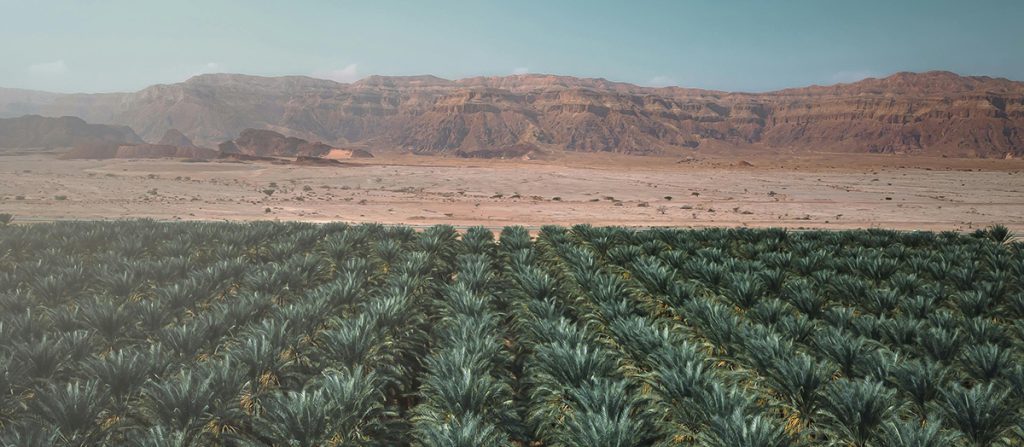
Bioenergy in the Middle East: Emerging Opportunities in Arid Lands
While the Middle East is predominantly known for its vast reserves of fossil fuels, several countries in the region are increasingly recognizing the importance of diversifying their energy mix and exploring sustainable alternatives like bioenergy. With abundant sunshine, significant agricultural residues, and a growing emphasis on renewable energy, nations such as the United Arab Emirates, Saudi Arabia, and Qatar are harnessing the power of biomass to meet their energy needs while promoting environmental sustainability.
Biogas and Biomethane: Waste-to-Energy Solutions
One of the most promising bioenergy formats in the Middle East is biogas, produced through the anaerobic digestion of organic materials such as municipal solid waste, agricultural residues, and animal manure. Countries like the United Arab Emirates and Saudi Arabia are leading the way in biogas production and utilization.
In the United Arab Emirates, companies like Bee’ah and Masdar are pioneering innovative biogas projects, utilizing feedstocks from municipal waste and agricultural sources. Additionally, the purification of biogas into biomethane has opened up new opportunities for renewable energy applications, with companies like DUSUP exploring the potential of biomethane for heating and power generation.
Renowned experts like Dr. Hassan Arafat from Khalifa University (UAE) and Dr. Mansour Almazrouei from the King Abdullah University of Science and Technology (Saudi Arabia) have made significant contributions to advancing biogas and biomethane technologies in the region.
Solid Biomass and Liquid Biofuels: Diverse Feedstocks and Applications
The Middle East’s agricultural sector also provides opportunities for the utilization of solid biomass and liquid biofuels. The region’s cultivation of crops like dates, olives, and wheat has fueled the development of a growing biofuels industry.
Companies like Neutral Fuels (UAE) and Sadaf Petrochemicals (Saudi Arabia) are leading producers of biodiesel, primarily derived from waste cooking oil and other vegetable oils. Additionally, the production of bioethanol from agricultural residues and waste streams has gained traction, with companies like Environtech (Qatar) exploring these sustainable alternatives.
Solid biomass, such as date palm residues and agricultural waste, is also being utilized for energy generation, particularly in the industrial sector. Companies like Emirates Global Aluminum (UAE) and Saudi Iron and Steel Company (Saudi Arabia) have made significant strides in using biomass for cogeneration and process heating in their facilities.
Renowned Experts and Research Institutions
The Middle East boasts several renowned experts and research institutions dedicated to the advancement of bioenergy technologies and policies. Dr. Muftah El-Naas from Qatar University is a pioneer in the field of biomass gasification and syngas conversion, while Dr. Isam Janajreh from Khalifa University (UAE) is a leading expert in bioenergy sustainability and policy analysis.
The Masdar Institute (UAE) and the King Abdullah University of Science and Technology (Saudi Arabia) have played pivotal roles in bioenergy research and development, contributing to the region’s efforts to promote sustainable energy solutions.
Breakthroughs and Developments
The Middle East has witnessed several notable breakthroughs and developments in the bioenergy sector. For instance, the Emirati company Averda has developed a groundbreaking technology for converting municipal solid waste into high-quality biochar and biofuels through a process called pyrolysis.
Additionally, the Saudi company SABIC has made significant strides in developing advanced biofuels from agricultural residues and waste streams, showcasing the potential for innovative biomass valorization strategies.
Looking Ahead
As Middle Eastern countries continue to explore and develop their bioenergy resources, the region presents exciting opportunities for economic growth, energy security, and environmental sustainability. With abundant biomass resources, a growing research and development ecosystem, and supportive policies, these nations are well-positioned to contribute significantly to the global transition towards a low-carbon economy. Through ongoing innovation, international collaboration, and sustainable resource management, the Middle East can leverage its bioenergy potential to meet its energy needs while promoting environmental stewardship and addressing climate change challenges in this arid region.
